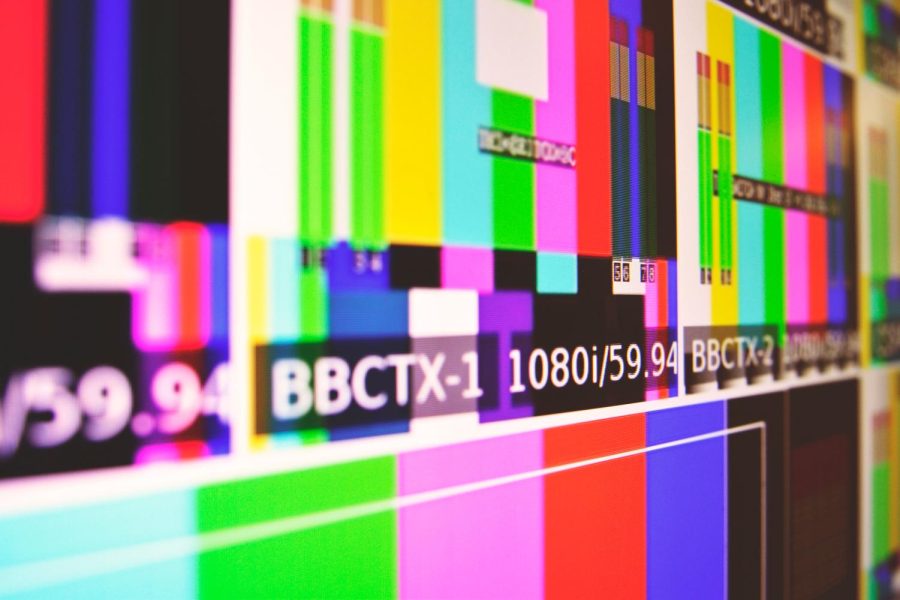Is reality television productive?
January 23, 2022
As reality television has risen in popularity in the recent decade, many have speculated that it plays a harmful role in influencing society’s behavior and cultural norms. Shockingly, adolescents have found an overwhelming interest in viewing reality television shows that promote morally corrupt behavior.
According to Brad Gorham of Syracuse University, “Reality television has an effect on the behaviors of people in society, as people are easily influenced and eventually copy the behaviors portrayed on television while using them in real life.” Dr. Tobias-Webb from The University of Michigan offers an explanation as to why these shows are so addicting; “The physiological arousal from drama is exciting; increasing our heart rate, visceral arousal and leading to the release of endorphins in the brain, which are pain-suppressing and pleasure-inducing, not much different from the effect of some drug addictions.”
Shows such as Bad Girls Club, Jersey Shore, and Keeping Up With the Kardashians have gained critical acclaim while contrastingly being criticized for glamorizing promiscuity and even alcoholism. The stars of these programs appear as young and beautiful people who binge on alcohol consumption. Still, the production always chooses to depict the consequences that alcohol and promiscuity bring to human health in the real world.
With an increase in its creation, reality television has damaged how humans interact with one another. Society has come to believe that what is portrayed on these shows is the acceptable, humorous, and normal way to behave.
It is no surprise that reality television programs have played a primary role in curating and supporting the stereotypes of certain ethnic groups, namely members of the Hispanic and African American diaspora. The plots of these programs aim to entertain the audience, often by including dramatic and sensational plots to increase viewership. However, as a result of this, many of the characters are prompted to humiliate themselves. This is detrimental to the characters because of the negative connotations that reality stars face after the program concludes, but the effects of this on society are even greater.

For example, a typical pattern in Black reality television is to bring together a group of African American women that play into the stereotype of being ill-mannered and foul-mouthed individuals. Despite recent attempts to promote positive values, reality TV predominantly perpetuates dangerous racial and cultural stereotypes. Cultural stereotyping in reality TV compromises the perception of self-identity and self-capability in minority groups. These shows may unintentionally affect the way a member of that minority group views themselves.
Many students who attend Alabama State University have differing opinions on whether reality television is as harmful as it is often criticized for. Here are some words from students who do not watch reality television and find it to be detrimental to society.
“Reality shows are bad, lazy television,” said freshman psychology major Kendall Booth. “They mostly show ordinary people with no special talents doing very little. If they have to sing or dance, then they do it badly, which doesn’t make for good entertainment. Even if they are popular, that doesn’t make them good shows. It just means that some people like to be entertained by drama. That’s the whole appeal.”
“People who watch reality television often will take the values learned from television and then use those values in their actual lives,” begins sophomore math major Brianna Graves. “Reality television is unethical and corrupting to society because of the improper values that it promotes.”
Other students found it appropriate to mention the hypocrisy behind the title “reality television.” In many cases, the characters in these shows are paid actors who simply recite scripts and perform improvisational scenes throughout filming. Clearly, these shows are inaccurately labeled as “reality television.” Many people watch these shows to view real-life situations, but what they are really viewing is the complete opposite. These students acknowledge to occasionally viewing the programs but also make personal distinctions between what is real and what is fake.
“Reality television shows do not accurately reflect reality and are deceptive,” said senior marketing major Ryan Childs. “With misleading editing, participants being coached on behavior, storylines generated ahead of time, and scenes being staged, they can make it look like anything happened. It’s fine to find entertainment in it as long as you know that it’s fake.”
On the contrary, students who indulge and find these shows to be light-hearted entertainment see no issue with watching them in moderation.
“I don’t think children should watch reality shows simply because these shows focus on aggressive behavior and unhealthy competition. Children often tend to confuse reality TV with the real world,” said sophomore communications major Raegan Nettles. “However, someone who is mature should be able to enjoy these shows for entertainment and recognize that they obviously can’t behave that way in the confines of real life.”
“Reality shows allow you to feel more engaged than a scripted television show,” notes freshman criminal justice major Stephanie Bollor. “They prepare us for the real world by giving us a virtual experience from the perspective of someone else. Being able to watch someone encounter an experience and learn from their mistakes is a valuable asset in the real world.”
For many, reality television is the lowest form of entertainment, an insult to societal collective intelligence. In their view, reality TV lauds crass behavior and creates a voyeuristic peep show. It glorifies abuse, elevates shallow personalities and promotes dysfunctional relationships. For many others, the entertainment and escape that it provides from their hectic livelihood serve as a daily dose of entertainment and leisure.







